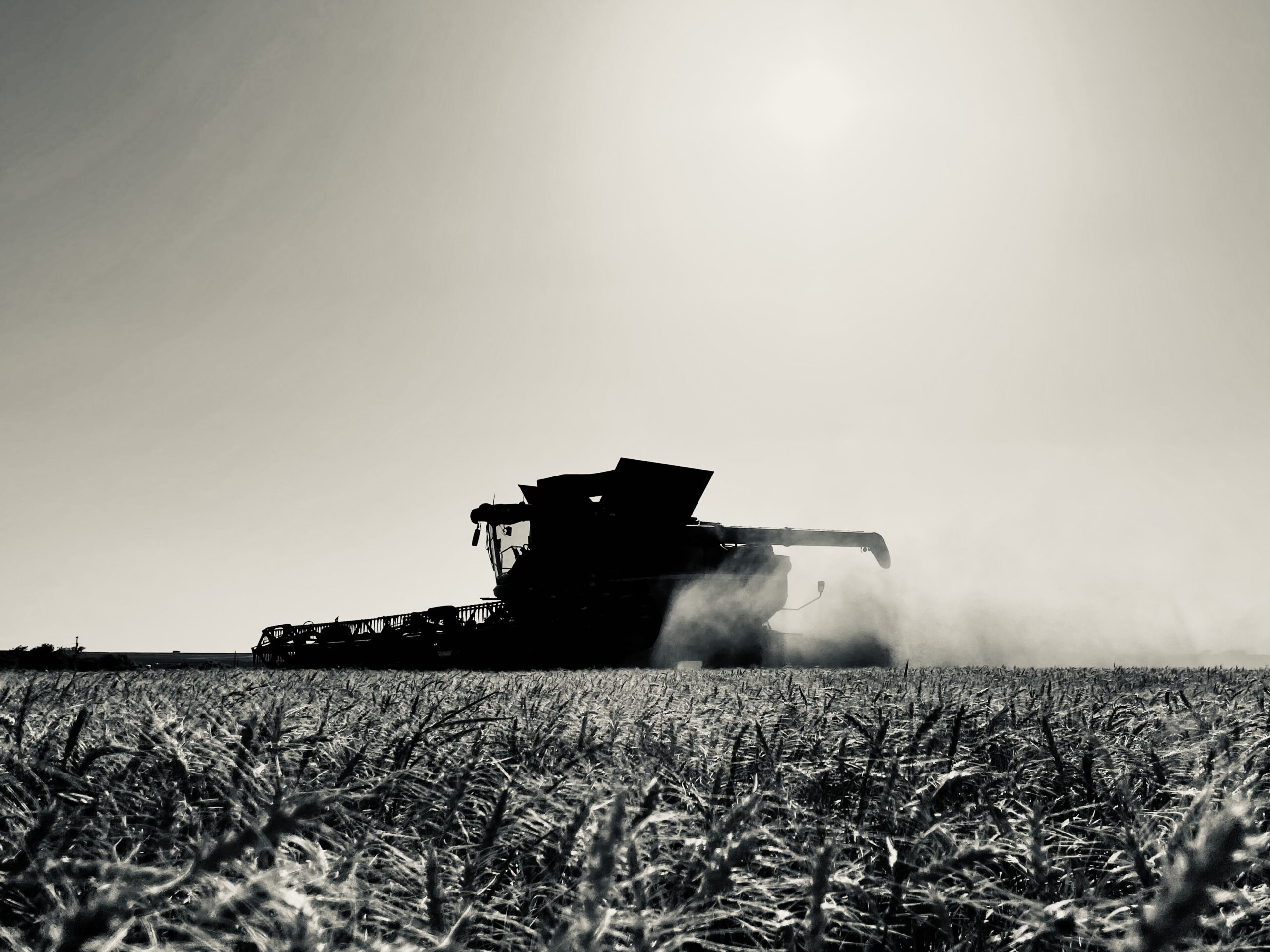
30 Jun Brian: Back in the driver’s seat
Thomas, Oklahoma—I think the crew is suffering from weather whiplash. Weather is always in the driver’s seat at harvest time, and we are just along for the ride. With eleven inches of rain, the weather had pulled the crew over at a rest area. While we appreciated a few days to take a breather and acclimate to our Oklahoma surroundings, we really needed to get this show on the road. Apparently the weather heard us whining in the back seat. It grabbed the steering wheel, told us to hang on and whipped a weather u-turn. Those cool temps and rainy days have disappeared in our rearview mirror, and we’ve been speeding down the harvest highway ever since.
Hot dry weather has finally entered our forecast, and the crew has been putting in long days. The mercury has crept past 100 degrees a few times, the humidity is low and the wind has been blowing non-stop. In fact, I think the wind has nearly worn us out more than the late nights in the field. For days now we’ve experienced 30-mile per hour winds, gusting even higher throughout the day. With conditions like this we have been covering a lot of acres each day.
Our optimism about the yields hasn’t panned out unfortunately. While a handful of fields managed to reach the 30s for yield, a majority of them struggled to hit 20. Many are ending up in the teens, and the yield monitor showed a few barely made it out of the single digits. When the yield number is barely larger than the moisture content you know it’s been a tough growing season. The test weights are also underperforming for the most part—thanks to the heavy rains—most somewhere around 57 pounds. We expected all of this with the drought, but what we didn’t expect was a fairly serious problem—sprout damage.
The weather whiplash from no moisture and then suddenly too much moisture has created a real headache for farmers. Most of the wheat has been ready to harvest for two weeks, but we’ve had to patiently wait for the ground conditions to dry up. Too much time has passed, and the hot weather paired with high humidity has caused the over-ripe kernels to start sprouting in the head. The degree of damage varies, but the majority of the fields have been affected. The elevator has graded some of our loads with only a few percentage points of sprout, but we have had some loads at nearly 20% damage. This potentially lowers the value of the grain on the open market, and the last thing farmers need is another financial hurdle to go along with the poor yields.
The mud and weeds caused by the rain have fortunately not caused as much heartache as we predicted, and the machines have been able to whiz along faster than normal. Of course quick speeds while cutting short wheat low to the ground demands non-stop attention from the combine operators. Bedtime hasn’t been before midnight for most of us now for a solid week, but in only 7 days we have successfully completed Oklahoma.
It’s one of the quickest harvests we’ve ever had here. All in all, everything went pretty well. Our only real headaches were a semi-truck air conditioner fan motor quitting on a 100-degree day and a deer antler puncturing a front combine tire. Of course it happens in an ultra-remote field just after mobile repair services close for the evening. Combine tire repairs often are very time-consuming and logistical nightmares. With nothing to lose, we jab a tire plug covered in gooey rubber cement into the puncture hole. It’s worth a try, even though such a fix is rarely successful on such a big tire. Somehow we luck out. It stops the leak, and we wrap up our final field here in Thomas.
And not a minute too soon. Harvest already started a few days ago at our next stop near Dodge City, Kansas. So there will be no break for the crew, and if the forecast is accurate no break from the hot, windy weather either. We’ve loaded up equipment, paid our bills and settled with our farmers. The weather has made us late to Kansas, but this trip we are in the driver’s seat. So buckle up, crank the air conditioner and try not to grind any gears. It’s time to hit the road and put Oklahoma in the rear view mirror. There’s no time to waste getting to Kansas, so shift into high … and step on it.
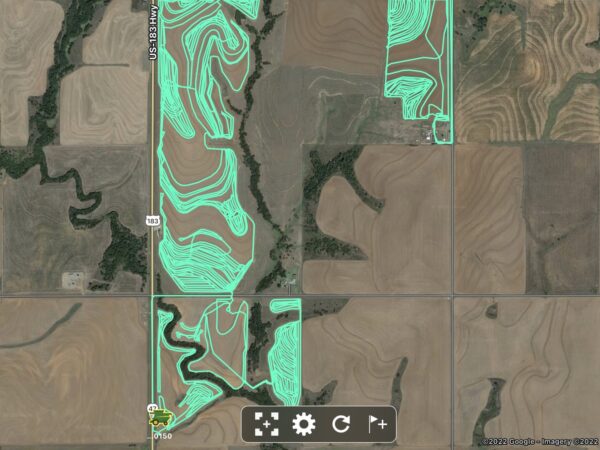
Cellular modems, data servers, GPS, CAN bus networks…todays equipment is filled with cutting edge technology. Every machine movement is tracked. As you can see on this day there were not many straight rows to harvest, typical of Oklahoma.
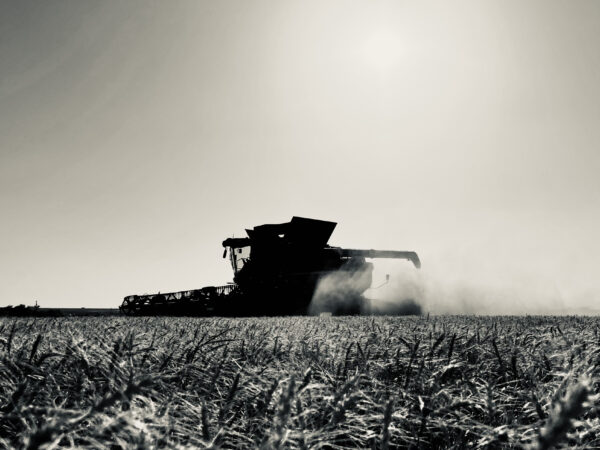
Harvest is filled with beautiful colors and contrasts. Sometimes black and white is equally as beautiful.
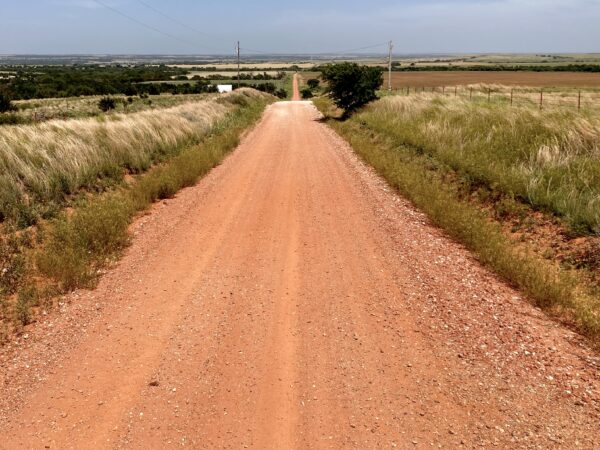
The red roads of Oklahoma are unique to this stop, and the terrain can be rough and tumble. Not always does it look like land fit for wheat fields.
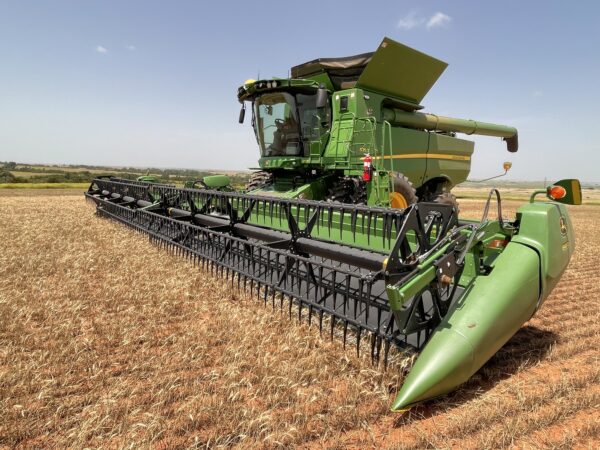
The drought took a toll on much of the lower Plains states, and it’s not hard to see the results of no rain. Thin, spindly wheat means low yields and low cutting heights – something everyone wishes we could have avoided.
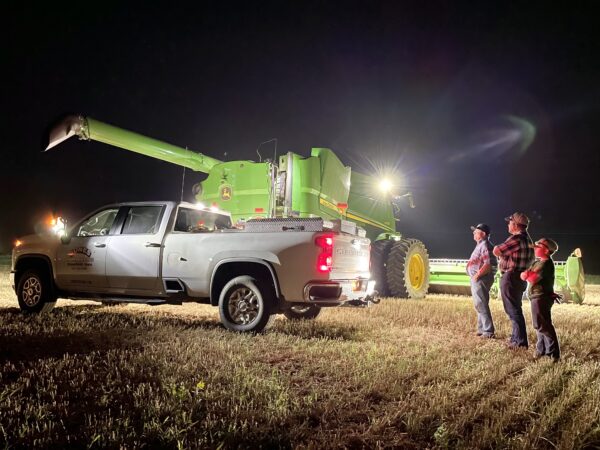
When the combines stop for the evening that doesn’t necessarily mean work is done for the day. Midnight fuel fill-ups ensure we keep enough $5/gallon diesel hauled to last a full day.
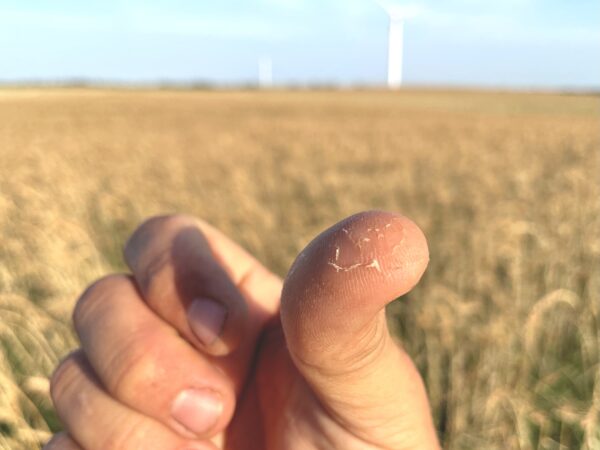
The uneven terrain, fast harvest speeds and low cutting height means the headers must be raised and lowered almost nonstop to capture all the kernels. This is not a “set it and forget it” kind of stop, as my calloused thumb can attest to from pushing the up/down height button zillions of times here.
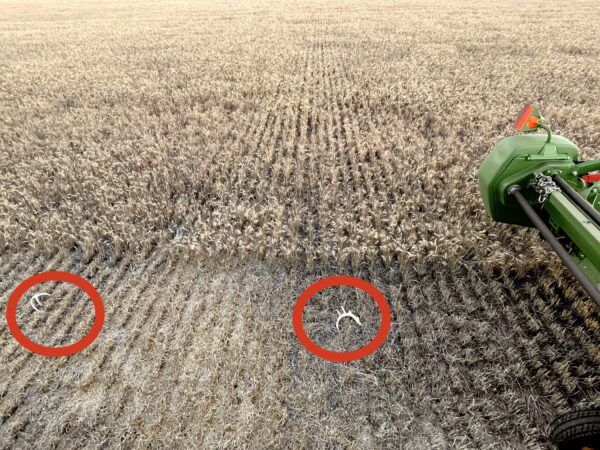
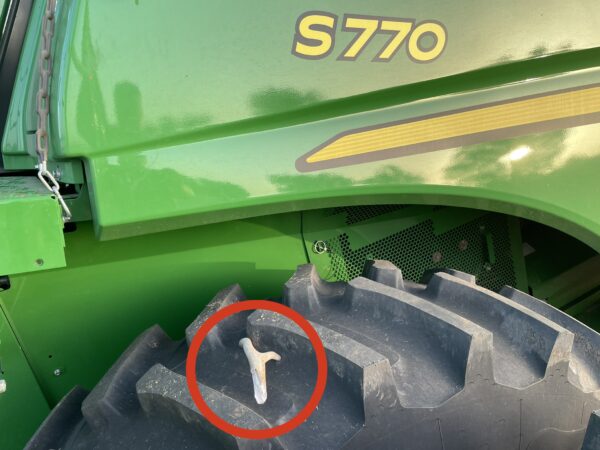
Deer antlers and not for Deere combines. Perhaps my machine didn’t get the memo. There is little you can do to avoid them, but they sure can cause a lot of heartache arranging to get a large tire fixed far from town.
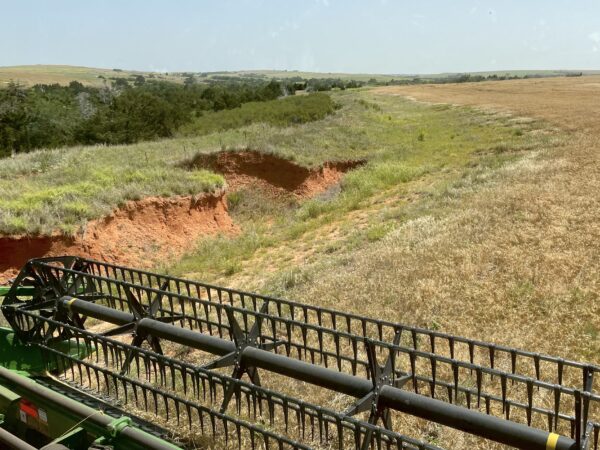
Years of wind and rain have shaped the Oklahoma landscape, cutting deep scars and creating wildly-shaped fields. Somehow Oklahoma seems more interesting than flat, square fields at times.
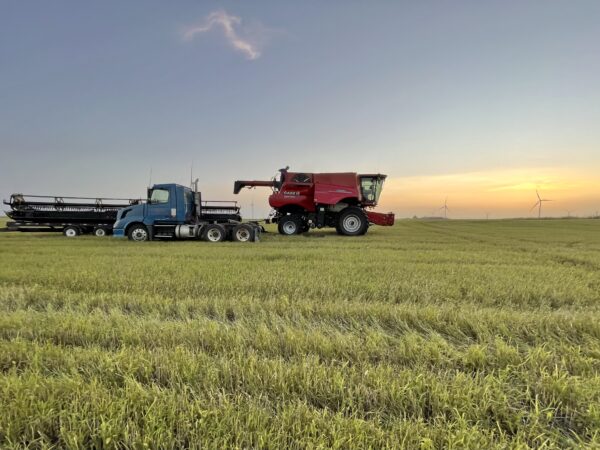
Ezra documents the crew cleaning equipment for the move to Kansas. Ironically, the gale-force winds of the past week are no where to be found, making for a hot, dirty cleaning job everyone hates.
Brian Jones can be reached at brian@allaboardharvest.com.
All Aboard Wheat Harvest is brought to you by ITC Holdings, CASE IH, Oklahoma Baptist Homes for Children, US Custom Harvesters Inc., Unverferth Mfg. Co. Inc., Lumivia CPL by Corteva Agriscience, Kramer Seed Farms, and High Plains Journal.
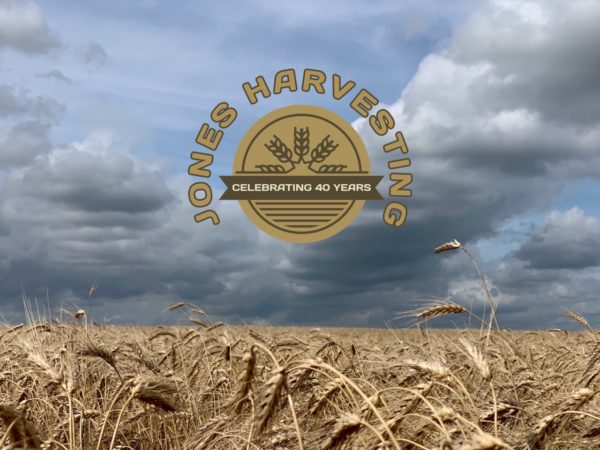

Sorry, the comment form is closed at this time.